What is Deontay Wilder's Record?
Deontay Wilder's record currently stands at 43 wins, 4 losses, and 1 draw. Of those 43 wins, he has stopped 42 of his opponents, so his current knock-out ratio is 98%. Of his 4 losses, he's been stopped 3 times. He's boxed a total of 179 rounds, meaning his professional fights last 3.7 rounds on average.
When was his last fight and how active is he?
Deontay Wilder's last fight took place against Zhilei Zhang on June 1, 2024, in Riyadh, Saudi Arabia. He lost by technical knockout in the 5th round. That fight was 1 month and 26 days ago.
Wilder's last 5 fights have come over a period of 4 years, 6 months and 9 days, which means he has been fighting approximately every 10 months and 26 days. In those fights, he fought a total of 38 rounds, meaning that they have lasted 7.6 rounds on average.
How Old Is Deontay Wilder And Where Is he From?
The heavyweight is currently 38 years old. He was born on October 22, 1985, so he will turn 39 in 2 months and 25 days.
Wilder was born in the United States.
How long has Wilder been fighting?
Deontay Wilder made his professional debut in November 2008, so he has been a pro for 15 years and 8 months.
How good is he?
Wilder is currently ranked 14th by the WBC at Heavyweight.
How tall is Wilder, What is his Reach And Which Stance Does he Use?
Wilder is 6' 7" tall, which is 201cm. His reach is 83.1 inches, which is 211 cm. Wilder fights from a traditional orthodox stance, which means he favours his right hand as his power hand when fighting.
What are some potential opponents for Deontay Wilder?
Some potential future fights for Wilder include Anthony Joshua, Andy Ruiz Jr, Unified Heavyweight Champion Oleksandr Usyk, Tyson Fury and Francis Ngannou.
What will be Deontay Wilder's Next Fight And Where Can I Watch It?
Deontay Wilder doesn't currently have a fight scheduled.
Some potential future fights for Wilder include Anthony Joshua, Andy Ruiz Jr, Unified Heavyweight Champion Oleksandr Usyk, Tyson Fury and Francis Ngannou.
In the UK you can usually stream Wilder's fights on DAZN PPV.
In the US you can usually stream Deontay Wilder's fights via DAZN PPV.
What are some recent Deontay Wilder results?
Deontay Wilder has stopped 1 of his last 5 opponents.
In his last fight, he lost to Zhilei Zhang on June 1, 2024, by technical knockout in the 5th round at Kingdom Arena, Riyadh, Saudi Arabia.
Prior to that, he had been beaten by Joseph Parker on December 23, 2023, by unanimous decision in their 12 round contest at Kingdom Arena, Riyadh.
Going into that contest, he had won against Robert Helenius on October 15, 2022, by knockout in the 1st round in their WBC World Heavyweight championship fight at Barclays Center, New York, United States.
Before that, he had lost to Tyson Fury on October 9, 2021, by knockout in the 11th round in their WBC World Heavyweight and The Ring Heavyweight championship fight at T-Mobile Arena, Nevada.
He had been beaten by Tyson Fury on February 22, 2020, by technical knockout in the 7th round in their WBC World Heavyweight and The Ring Heavyweight championship fight at MGM Grand, Las Vegas.
Deontay Wilder Stats
| Age | Date Of Birth | Nationality | Height | Reach | Stance | Weight Division |
| 38 | October 22, 1985 | United States | 201 cm | 211 cm | orthodox | Heavyweight (200+ lb) |
Deontay Wilder Record
| Professional Record | Wins | Wins By KO | Knockout Percentage | Losses | Losses By Stoppage | Draws | Pro Rounds | Debut |
| 43-4-1 | 43 | 42 | 98% | 4 | 3 | 1 | 179 | 2008 |
Deontay Wilder Rankings
| Weight | The Ring Magazine | WBC | IBF | WBA | WBO |
| Heavyweight | - | 14 | - | - | - |
Deontay Wilder Recent Contests
| Date | Opponent | Result | Replay | Venue |
| 2024-06-01 | Zhilei Zhang | Lost (TKO 5) | | Kingdom Arena, Riyadh, Saudi Arabia |
| 2023-12-23 | Joseph Parker | Lost (UD 12) | | Kingdom Arena, Riyadh, Saudi Arabia |
| 2022-10-15 | Robert Helenius | Won (KO 1) | | Barclays Center, New York, United States |
| 2021-10-09 | Tyson Fury | Lost (KO 11) |
watch replay
| T-Mobile Arena, Nevada, NV, United States |
| 2020-02-22 | Tyson Fury | Lost (TKO 7) |
watch replay
| MGM Grand, Las Vegas, United States |
| 2019-11-23 | Luis Ortiz | Won (KO 7) |
watch replay
| MGM Grand, Las Vegas, United States |
| 2019-05-18 | Dominic Breazeale | Won (KO 1) |
watch replay
| Barclays Center, New York, United States |
| 2018-12-01 | Tyson Fury | D (SD 12) |
watch replay
| Staples Center, LA, United States |
| 2018-03-03 | Luis Ortiz | Won (TKO 10) |
watch replay
| Barclays Center, New York, United States |
| 2017-11-04 | Bermane Stiverne | Won (KO 1) |
watch replay
| Barclays Center, New York, United States |
| 2017-02-25 | Gerald Washington | Won (TKO 5) |
watch replay
| Legacy Arena, Birmingham, United States |
| 2016-07-16 | Chris Arreola | Won (TKO 8) |
watch replay
| Legacy Arena, Birmingham, United States |
| 2016-01-16 | Artur Szpilka | Won (KO 9) | | Barclays Center, New York, United States |
| 2015-09-26 | Johann Duhaupas | Won (TKO 11) |
watch replay
| Legacy Arena, Birmingham, United States |
| 2015-06-13 | Eric Molina | Won (KO 9) | | Bartow Arena, Birmingham, United States |
| 2015-01-17 | Bermane Stiverne | Won (UD 12) | | MGM Grand, Las Vegas, United States |
| 2014-03-15 | Malik Scott | Won (KO 1) | | Coliseo Ruben Rodriguez, Bayamon, Puerto Rico |
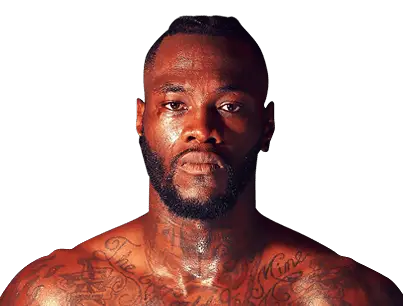


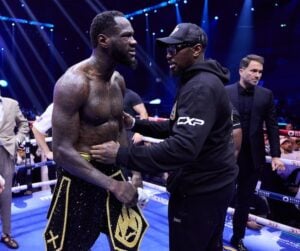
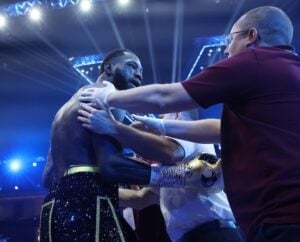

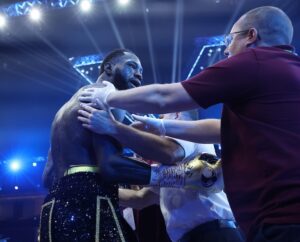


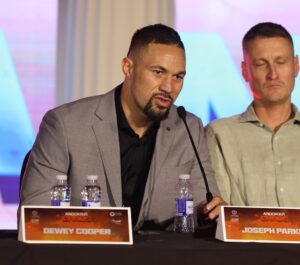














I think deontay by decision he is very strong and fast that’s why he will win
I need him to win against fury
Hopefully Wilder fights the likes of Usyk and Joshua before he retires. Could cement his legacy in boxing.